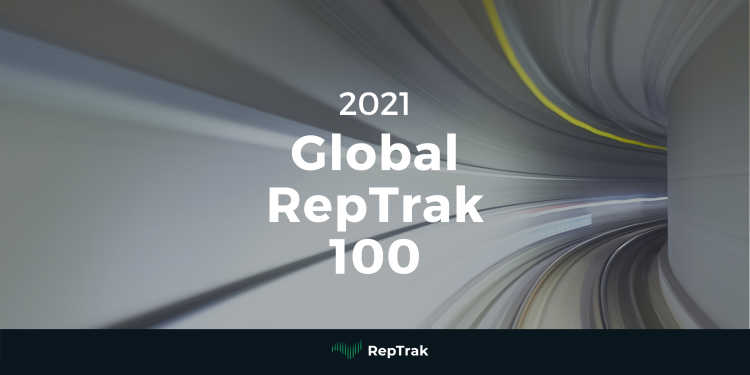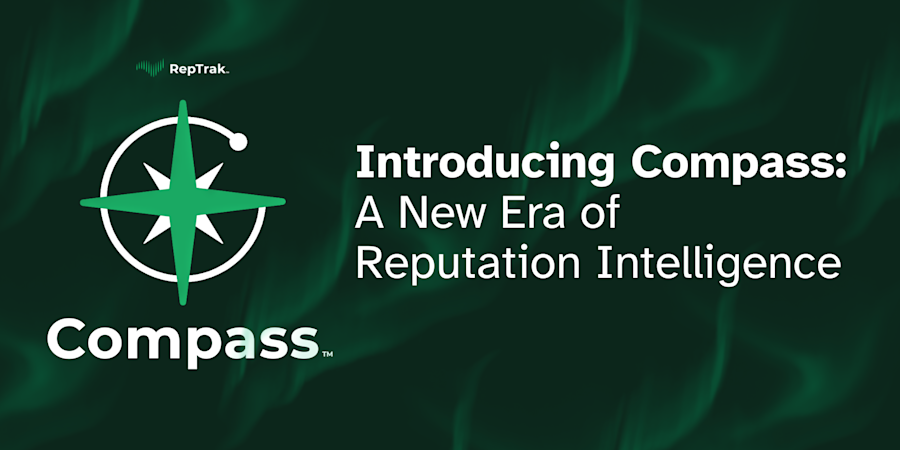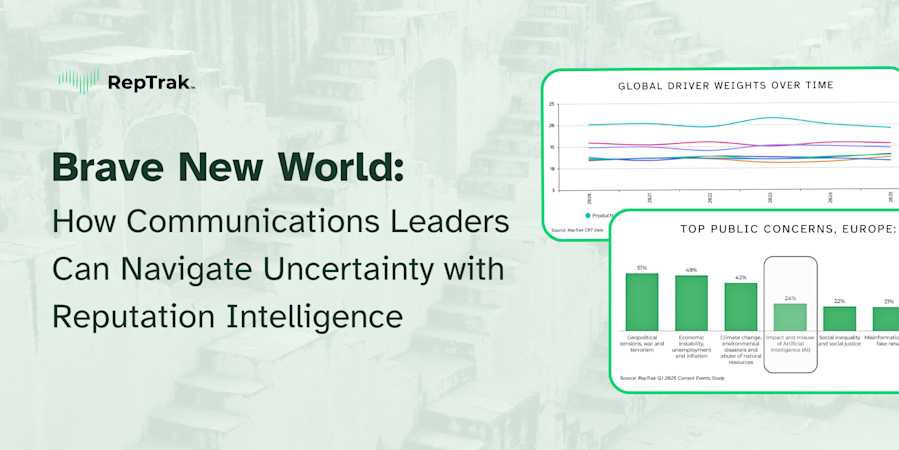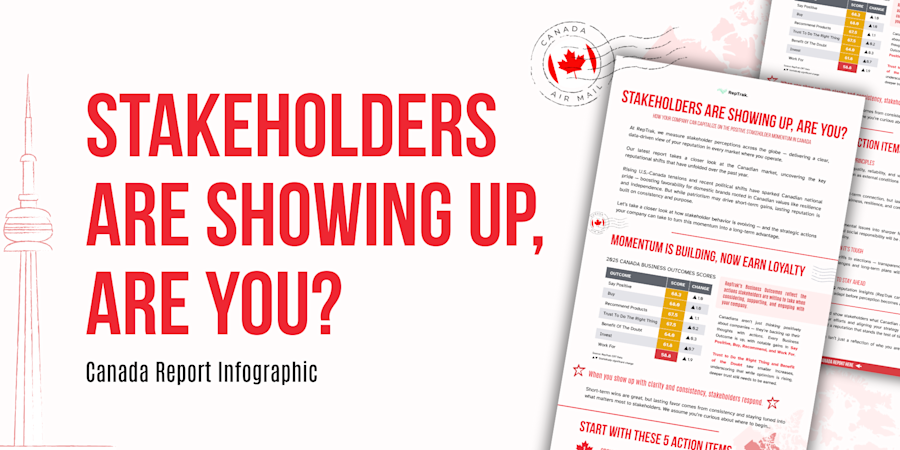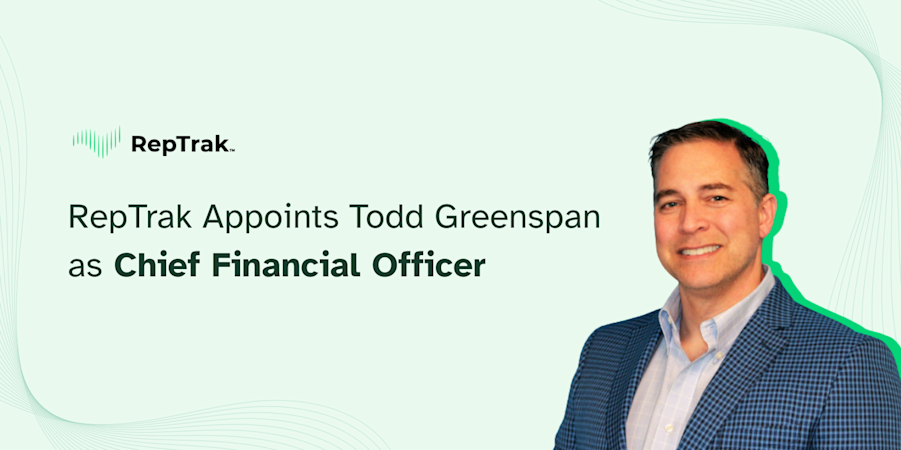Introducing The 2021 Global RepTrak 100
Blog Post12 Apr, 2021
In a year like no other, these are the companies that showed up and emerged stronger than ever.
In a year when “super-spreader event,” “social distancing,” and “doomscrolling” entered the popular lexicon, the outlook for corporate reputation was uncertain. With a global pandemic there were many ways that companies could go wrong. Instead, amid uneven government responses, many companies rose to the occasion, bringing their unique capabilities to bear.
Key Takeaways
Key Takeaway No. 1: There’s No Such Thing As A Bad Time To Focus On Reputation
In 2021, the top 100 companies achieved a “strong” global Reputation Score of 74.9 points vs. 73.1 points in 2020, a 2.5% increase year-over-year. In fact, this global Reputation Score reached its highest point ever in 2021, maintaining a positive trajectory since 2018.
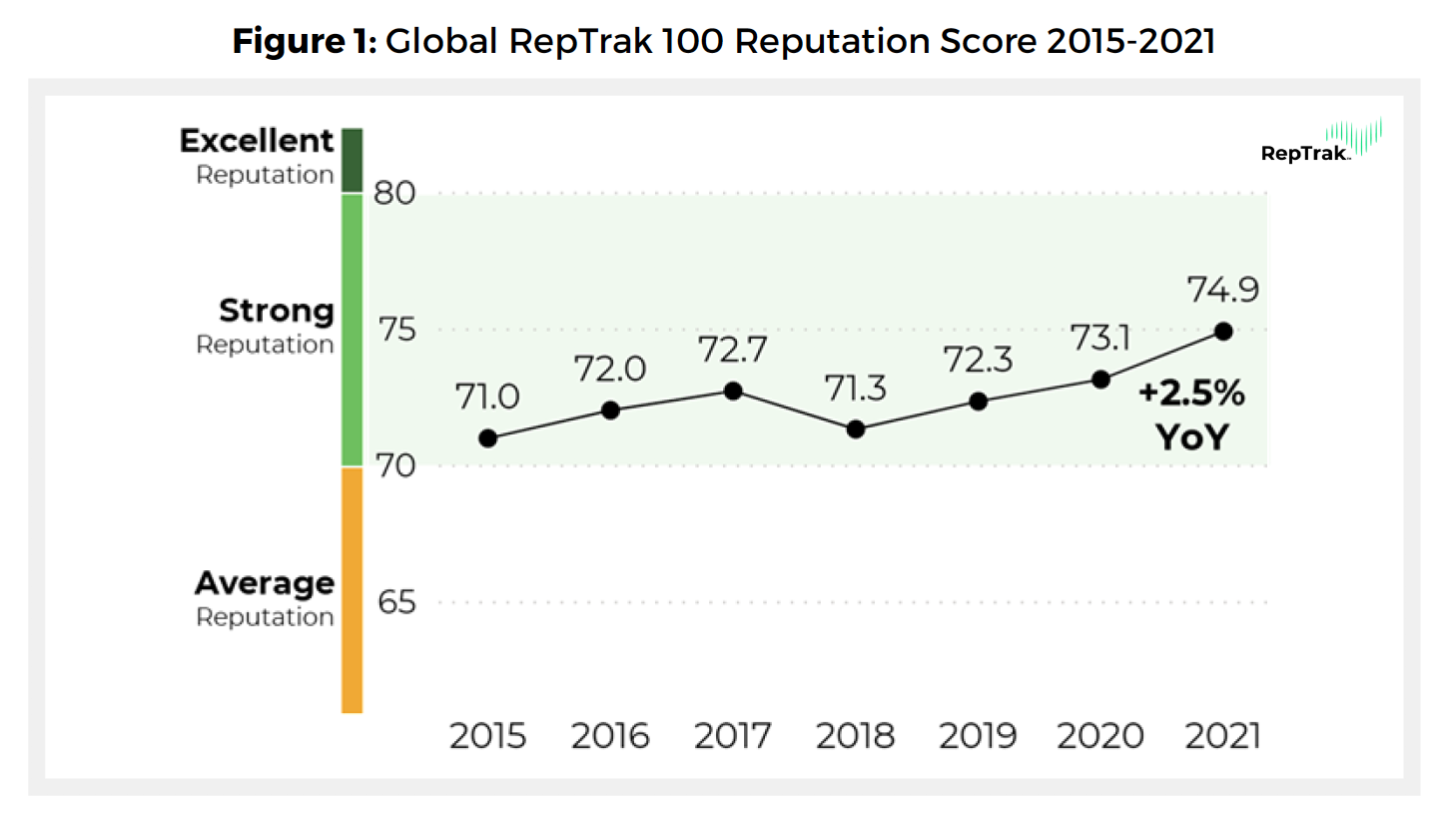
What does this mean for Communications leaders?
It means there is no such thing as a bad time to focus on your corporate reputation. With corporate reputation reaching new highs in a year of tumult, it is time to get rid of the notion that there are good or bad times to focus on reputation.
It shows that the global public wants companies to take a stand and communicate what they are doing to address the problems of the moment. We would not have seen such notable increases in scores if people wanted more of the same.
The data shows that reputation isn’t static - it is fluid, constantly evolving, and does not always act in ways you would expect. It is critical that Communications leaders continuously measure and monitor their corporate reputations to scale up initiatives that resonate and quickly dial back those that don’t.
Key Takeaway No. 2: When It Comes To Reputation, Go Big Or Go Home
In 2015, an “average” Reputation Score of 65.4 could get you into the top 100. This year, you need a “strong” score of at least 72.9 to break into the top 100 – a 7.5 point increase in a short amount of time. In 2015, the gap between the No. 1 and No. 100 ranked company was 13.6 points. Fast forward to 2021 and the gap has narrowed to just 7.5 points, a 1.8x smaller gap than just six years ago.
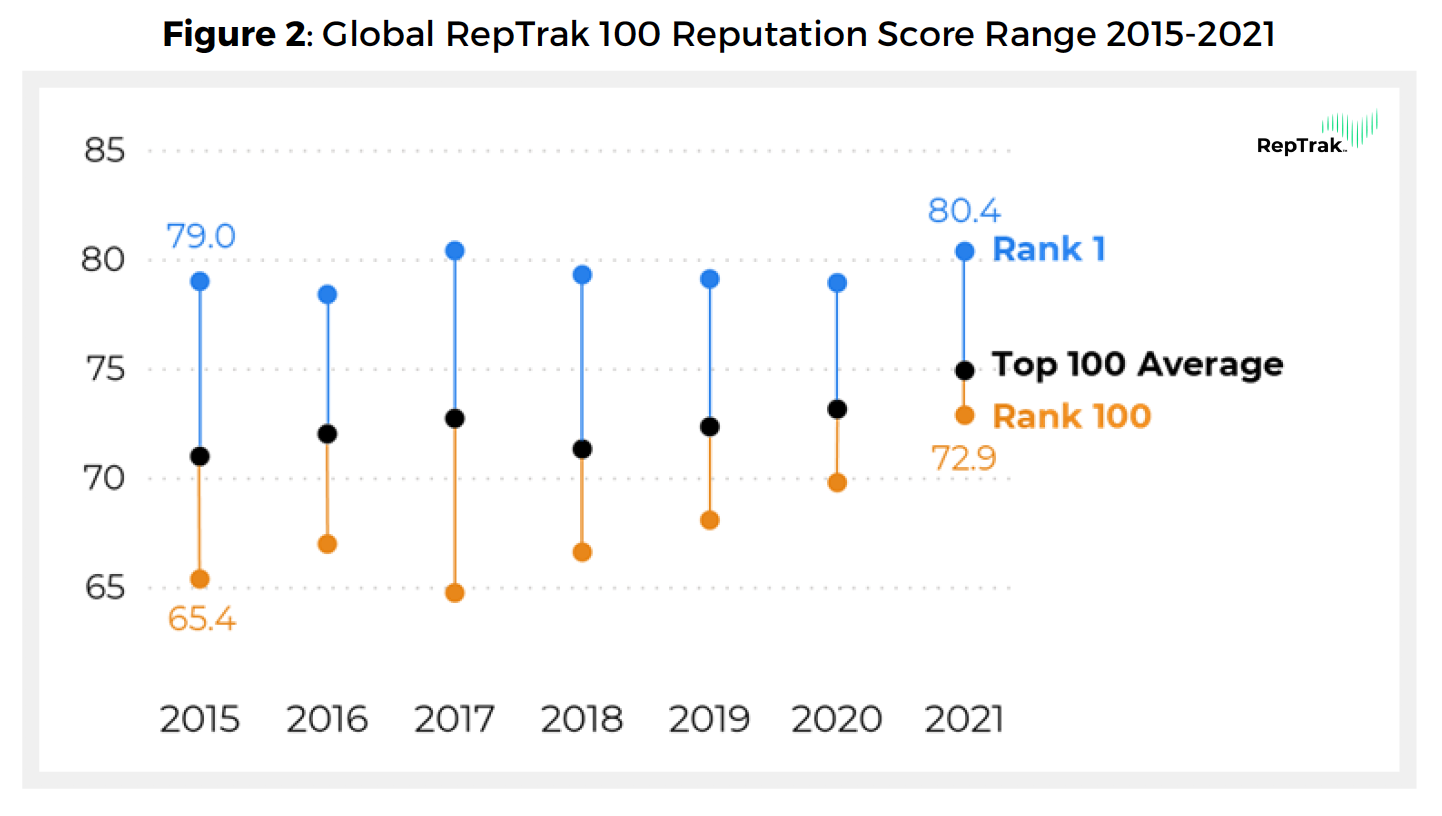
Not only is there more competition to get into the top 100 - it is also much harder to stay there. Several companies that made the Global RepTrak 100 in 2020 achieved similar scores this year, but due to this increased competition, they saw drops in their ranking relative to last year. What was considered ‘good' in 2020 is only 'average’ in 2021, so companies looking to leverage their reputation as a competitive advantage need to up their game, and they need to do it quickly.
Key Takeaway No. 3: Reputation Management Isn’t A “Set It And Forget It” Initiative
There were an impressive eighteen new entrants to the top 100 who shook things up - one of the reasons many companies experienced declines in their 2021 ranking. Not only did these newcomers boost their reputations enough to break into the top 100 - their Reputation Scores are, on average, 5 - 10 points higher than the companies they replaced.
Even companies with established reputation strategies are at risk of losing ground due to seismic events or disruptive companies entering their space. Just because something has worked in the past is no guarantee it will work in the present.
For leaders who are new to the reputation space, the good news is that these eighteen companies prove that you can make big strides in less than a year and demonstrate that legacy players aren’t a barrier to breaking into the top 100.
Areas Of Improvement, Even For The Top 100
All companies - including the top 100 - have work to do when it comes to how they are perceived as corporate citizens and employers. If this is true of the most reputable global companies, then every company can and needs to improve here. Companies can advance their standing by focusing on these areas and segments.
Citizenship
Whether or not your company is viewed as a global citizen is critically important to your corporate reputation. The public currently sees companies as having a positive influence on society, but the other areas that define Citizenship tell a different story. Not only does acting responsibly to protect the environment get “average” marks across the board; the story is especially vexing at lower age cohorts, particularly respondents 18 - 24 years old.
Why are companies struggling when it comes to public perception of their environmental efforts? One explanation is that the public sees companies launching new initiatives, but see little action or results. Given the importance of ESG and the increasing regulations around it, companies need to make sure they are walking the walk in addition to talking the talk.

Workplace
Our data shows that companies still have a way to go when it comes to demonstrating concern for the health and well-being of their employees. This holds true across age groups. During a pandemic when well-being assumes a new sense of urgency, employer actions are critical to maintaining workforce resilience. Companies need to clearly articulate key policies and procedures and also prioritize empathetic and personalized communications. This crisis is a chance to be there for employees in

No Matter What Your Business Goal Is, You Need To Care About ESG
Regardless of what your company’s 2021 strategy and key business goals are, a strong ESG performance needs to be a part of them. Why is this important for companies at a global level? Because ESG is among the top three most important factors when it comes to whether the public will give a company the benefit of the doubt in a time of crisis, buy from that company, trust it to do the right thing, and recommend it to others.

ESG is the No. 1 determining factor of whether you will get the benefit of the doubt in a time of crisis. If 2020 showed us anything, it was that a crisis can happen anytime, and usually when you least expect it. Having “strong” ESG-perception scores can go a long way in helping your company weather a crisis by increasing your stakeholders' willingness to give you the benefit of the doubt.
If getting people to buy your product is a key business outcome, then your Products impact buying behavior the most. Brand comes in at No. 2, as consumers buying into a brand is often as important as buying the product itself. ESG comes in at No. 3. and the fact that it makes it into the top three should be a big wake-up call for companies who think ESG isn’t more than a trendy buzzword.
When it comes to whether the public trusts a company to do the right thing, ESG is the single most important determining factor. If you want your stakeholders to trust you, you need to ensure that you are clearly and consistently communicating your ESG initiatives to your stakeholders. If your business goal is to get your stakeholders to recommend your company, then you guessed it, ESG is also critical. Basically, no matter what business goal you care about, the public’s perception of your ESG efforts is key to advancing it.
Interested in looking at how corporate reputation fared by industry?
Curious on the top 10 by generation?
Then click here to read the full Global RepTrak 100 report for these insights and more.
